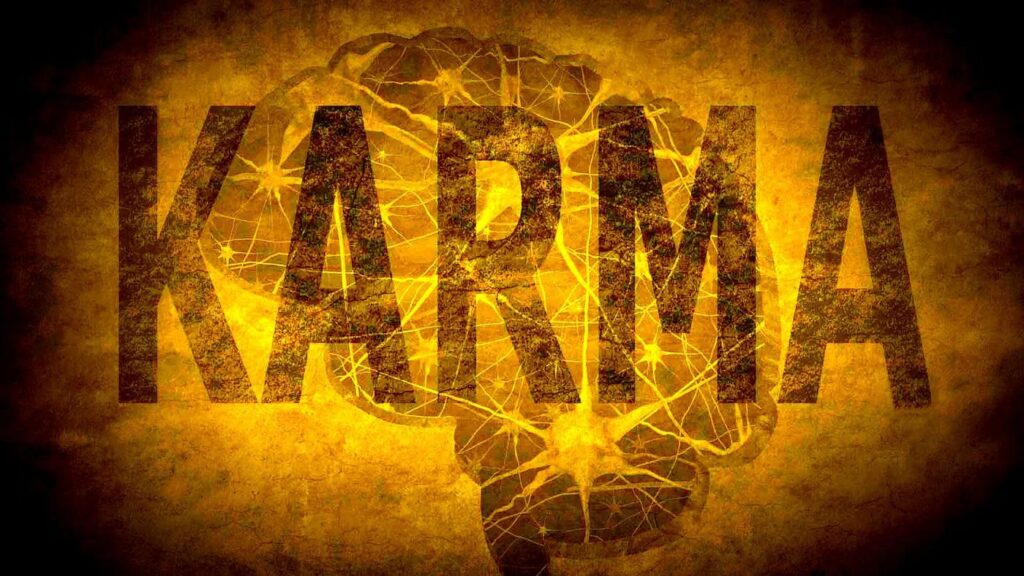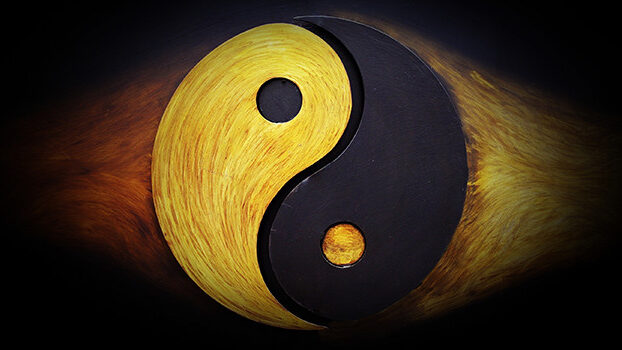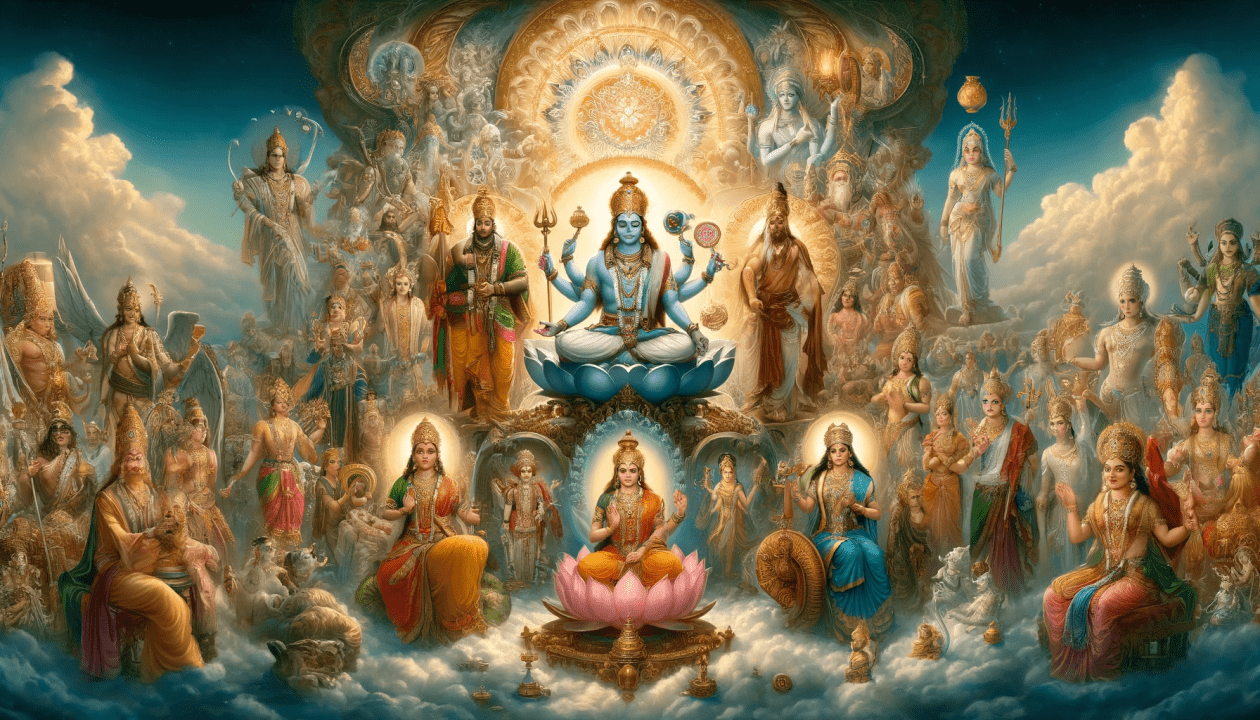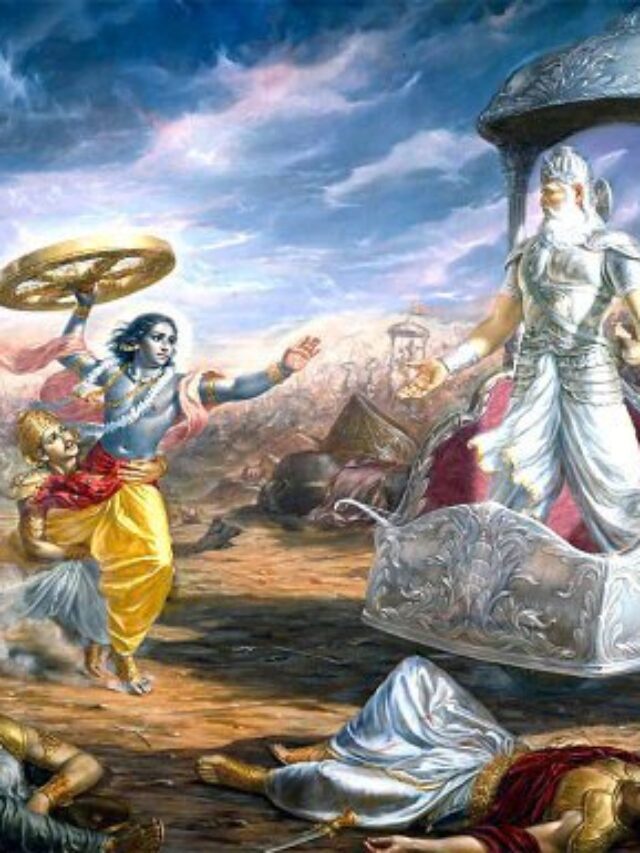

Karma is one of the most profound and essential concepts in Hindu philosophy. It’s a principle that shapes the way Hindus perceive life, death, and everything in between. The word “Karma” literally means “action” or “deed,” but its deeper implications extend far beyond simple actions. In Hinduism, karma is intricately linked with ideas of cause and effect, moral responsibility, and the cycle of birth, death, and rebirth. It’s not just about rewards and punishments but a much more nuanced philosophy about how our actions, thoughts, and intentions interact with the universe.
In this blog post, we will dive into the concept of karma, explore its origins and significance in Hindu philosophy, and understand how it applies to our daily lives. Whether you are a lifelong student of Hinduism or just beginning to explore its teachings, understanding karma is essential for grasping the broader spiritual landscape of this ancient religion.
Table of Contents
What Is Karma?
At its core, karma refers to the law of cause and effect. Every action, whether physical, mental, or emotional, generates a result. The actions we take today will influence our future — not just in this life, but across multiple lifetimes, according to Hindu beliefs. This idea rests on the assumption that nothing happens by chance; everything is connected, and every action has a consequence.
Karma in Hinduism isn’t seen as a system of rewards and punishments. It’s not as simple as “do good, get good; do bad, get bad.” Rather, karma is more about balance. It teaches us that our actions, whether positive or negative, set into motion a series of events that lead to corresponding outcomes. It is the way the universe responds to our intentions and actions, making it one of the most powerful forces in the spiritual realm.
However, it’s important to note that karma is not always immediate. The effects of actions may not be visible right away, and sometimes the results are felt only after years or even lifetimes. This is particularly true in the case of samsara (the cycle of birth, death, and rebirth), which is deeply entwined with karma. In this context, karma transcends this life and carries over into the next, shaping one’s experiences based on past actions.
The Role of Karma in Reincarnation
In Hinduism, karma is inextricably tied to the belief in reincarnation, or samsara — the continuous cycle of birth, death, and rebirth. According to this belief, the soul (atman) is eternal and takes birth in various forms over many lifetimes. The nature of each life is determined by the accumulated karma of past actions, whether from the current life or previous ones.
Good actions lead to good karma, which in turn influences the next birth in a positive way. A person with good karma may be born into a loving family, experience happiness, or enjoy health and success in their next life. On the other hand, negative karma, born of harmful deeds, can result in a life full of suffering, illness, or difficult circumstances. Essentially, karma acts as a moral compass that guides the soul on its journey through the cycle of rebirth.
However, it’s important to understand that karma isn’t just about making things “right” or “wrong.” It’s more nuanced, suggesting that the totality of one’s actions, desires, and intentions influences future outcomes. This concept allows for personal growth and evolution across lifetimes, encouraging individuals to gradually move toward self-realization and ultimately, liberation (moksha) — the liberation from the cycle of birth and death
The Three Types of Karma
Hindu philosophy breaks karma down into three primary categories, each of which plays a different role in shaping our spiritual journey. These categories are:
Sanchita Karma: This is the accumulated karma from all past lives. It is the total sum of all the actions we have performed, both good and bad, over the course of many lifetimes. Sanchita karma is not something we can directly alter, but it does influence our current life. It’s the foundation upon which the circumstances of our present life are built.
Prarabdha Karma: Prarabdha karma refers to the portion of karma that is actively being worked out in the present life. It’s the karma that determines the basic circumstances you’re born into, such as your family, environment, health, and even your major life events. In other words, it is the portion of accumulated karma that is being experienced right now. While we cannot change prarabdha karma directly, how we respond to it through our thoughts and actions can influence future karma.
Agami Karma: Agami karma is the karma we create through our actions in the current life. Unlike sanchita or prarabdha karma, agami karma is the most “active” form because it is within our control. Every decision we make, every word we speak, and every action we take generates new karma. The intentions behind these actions play a crucial role. For instance, helping someone selflessly will create good karma, while selfish or harmful actions will accumulate negative karma.
The Importance of Intention in Karma
In Hinduism, karma is not simply a result of actions; intention plays a pivotal role in determining the outcome. The ancient texts emphasize that the energy behind a deed matters just as much as the deed itself. A seemingly good deed performed with selfish motives or a hidden agenda might not generate positive karma. Similarly, an action taken with pure and selfless intent — even if the results don’t go as planned — may still lead to good karma.
For instance, donating money to charity might be a virtuous action, but if the donor’s intention is to gain social recognition or to feel superior, the positive karma from the act diminishes. On the other hand, helping someone without expecting anything in return, simply because you wish to alleviate their suffering, would generate much more positive karma, even if the outcome of your help is not as you expected.
Therefore, in Hindu philosophy, a pure heart and an intention of love, compassion, and service are integral to creating good karma. It’s not enough to just “do good” — one must also strive to act with the right mindset and with a sense of selflessness.
The Law of Cause and Effect
At the heart of karma is the law of cause and effect, which states that every action we perform creates an equal and opposite reaction. This reaction can manifest in various forms—emotionally, physically, spiritually, or socially. The principle of karma suggests that nothing happens in isolation, and everything is interconnected. Our actions, no matter how small, send ripples through the universe, influencing not only our lives but also the lives of others.
In the Bhagavad Gita, Lord Krishna teaches that one should perform their duties and actions with the right mindset, without attachment to the outcome. This concept is referred to as Nishkama Karma or selfless action. According to this teaching, individuals are encouraged to perform their duties in the world, but without a desire for personal gain or recognition. This helps to minimize negative karma and encourages the development of positive karmic impressions.
Breaking the Cycle of Karma: The Path to Liberation
The ultimate goal in Hinduism is to break free from the cycle of samsara, and karma plays a crucial role in this process. To transcend karma and achieve liberation (moksha), one must transcend attachment to the fruits of their actions. This is where the practice of Nishkama Karma—selfless, detached action—becomes essential.
By performing actions without attachment to results, individuals can purify their hearts and minds, gradually reducing the accumulation of negative karma. Through meditation, devotion, and selfless service, a person can purify their karmic load and attain spiritual freedom. The Bhagavad Gita teaches that those who act with a sense of surrender to the divine will can free themselves from the binding effects of karma.
Practical Implications of Karma
The law of karma has profound practical implications for how we live our daily lives. By recognizing that our actions have consequences, we become more conscious of our choices and their potential impact on others. This awareness encourages ethical living, as individuals strive to make decisions that contribute to personal growth, societal harmony, and spiritual evolution.
Karma also teaches that we are responsible for our own happiness and suffering. While external circumstances may shape our lives, it is our actions, attitudes, and responses that determine how we experience them. This empowers individuals to take charge of their destiny, knowing that they can influence their future through the quality of their present actions.
Conclusion
Karma is not just a concept, but a profound spiritual law that governs the universe. It teaches that every action, thought, and intention has consequences, and that we are all interconnected in the vast web of existence. By living with awareness and cultivating pure intentions, we can create positive karma and contribute to the greater good of humanity.
Through the practice of selfless action, mindfulness, and ethical living, we can gradually break free from the cycle of karma and move closer to the ultimate goal of liberation. Understanding karma empowers us to live more consciously and harmoniously, knowing that the choices we make today will shape the world of tomorrow.



